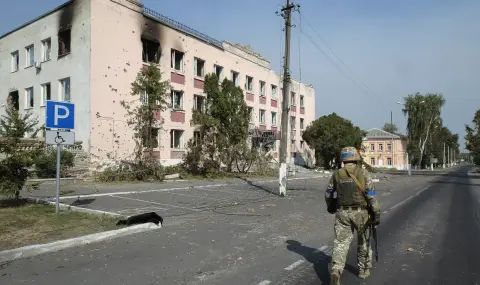As early as December 2022, the governor of the Belgorod region Vyacheslav Gladkov announced: “We are forming several battalions from those fighters of Russia who, for health or age reasons, cannot be called up to the armed forces, but have combat experience and a great desire to defend their homeland and their family if necessary“.
Strengthening territorial defense units
According to information on the “7 x 7“ website, as of mid-June 2024, the so-called territorial defense units already exist in six regions of Russia: Belgorod, Bryansk, Kursk, Voronezh, Orel and Pskov regions. According to Gladkov, there are about 6,000 people in this type of detachment in the Belgorod region who perform combat missions along the border. There is no exact data on the number of detachments in other Russian regions.
Until now, the "volunteers", as locals call them on social networks, have covered their expenses themselves or with the help of local authorities. But at a recent meeting with President Vladimir Putin, the governor of the Bryansk region, Alexander Bogomaz, complained about a shortage of funds: "Currently, we pay for everything from the regional budget. We could reduce the burden on the budget and increase the number of participants in territorial defense." Belgorod region governor Vyacheslav Gladkov also stressed the need for systematic support - otherwise the regions would not be able to cope with territorial defense on their own. Then President Putin ordered the issue of financing territorial defense to be resolved “immediately”.
Interest in military service is growing
Meanwhile, in the Rostov region, as reported by the TASS news agency, the number of people wishing to serve in the army under contract has increased by 20 percent “after the events in the Kursk region and the increase in salaries for mercenaries in the region”.
“If last month 30-35 people came to us, today the number of people wishing to come reaches 50”, says Major Igor Minyukov, deputy head of the contract military recruitment office in Rostov-on-Don.
The authorities in the Rostov region have almost doubled the salaries of those who sign a contract with the Russian Armed Forces by August 31: up to 1.2 million rubles. Previously, the salary was 700,000 rubles.
Evacuation exercises in Russian border regions
In a report to Putin on August 22, Bryansk Region Governor Alexander Bogomaz reported that so far the operational headquarters has conducted emergency evacuation exercises for residents in six border regions of the region. 12 temporary accommodation points have been prepared in the region for such cases.
In the Belgorod Region, construction of shelters has begun, and anti-terrorist protection is being strengthened. “We are installing concrete shelters on both children's and sports grounds, in front of school gates. Where there are no basements, we form zones that allow you to hide from the shrapnel, we cover the windows with foil that protects against shrapnel", says Vyacheslav Gladkov.
Security measures against drone attacks
In the Belgorod region, which has recently been the subject of daily attacks by Ukrainian drones, a decision was made to switch some schools to distance learning. Parents were offered the opportunity to decide for themselves during the school year whether to take their children to school or let them study from home.
At the same time, "parents, who know that distance learning is definitely inferior to in-person learning, began to think about moving to other regions", Gladkov admits.
Many children in the Kursk region, part of which is under the control of the Ukrainian army, will also study remotely. And in the Voronezh region, authorities announced that additional security measures will be introduced in schools, including due to the threat of drone and missile attacks.
In the Bryansk region, temporary protective measures have also been introduced - railway employees have been provided with bulletproof vests and helmets to protect them from injury in the event of a possible attack on Ukraine.
CCTV cameras to be turned off
The Russian Ministry of Internal Affairs has urged residents of the Bryansk, Kursk and Belgorod regions not to record videos from CCTV cameras while traveling by car so as not to facilitate potential Ukrainian attacks.
“The enemy massively identifies IP ranges and remotely connects to unprotected CCTV cameras, looking at everything - from private yards to roads and routes of strategic importance. "Therefore, if there is no urgent need, it is best to turn off the video surveillance cameras," the Russian Interior Ministry's recommendation states.
At the same time, citizens are urged not to upload audio and video recordings from vehicle recorders to the network and not to stream from highways where military equipment could be located, the safety of which could be at risk.
In addition, employees from the Kursk, Bryansk and Belgorod regions are recommended to hide their personal data, remove all geolocations from information on social networks, as well as photos with geolocations, so that the actual location of the military and security personnel cannot be revealed.
Author: Elena Gunkel
